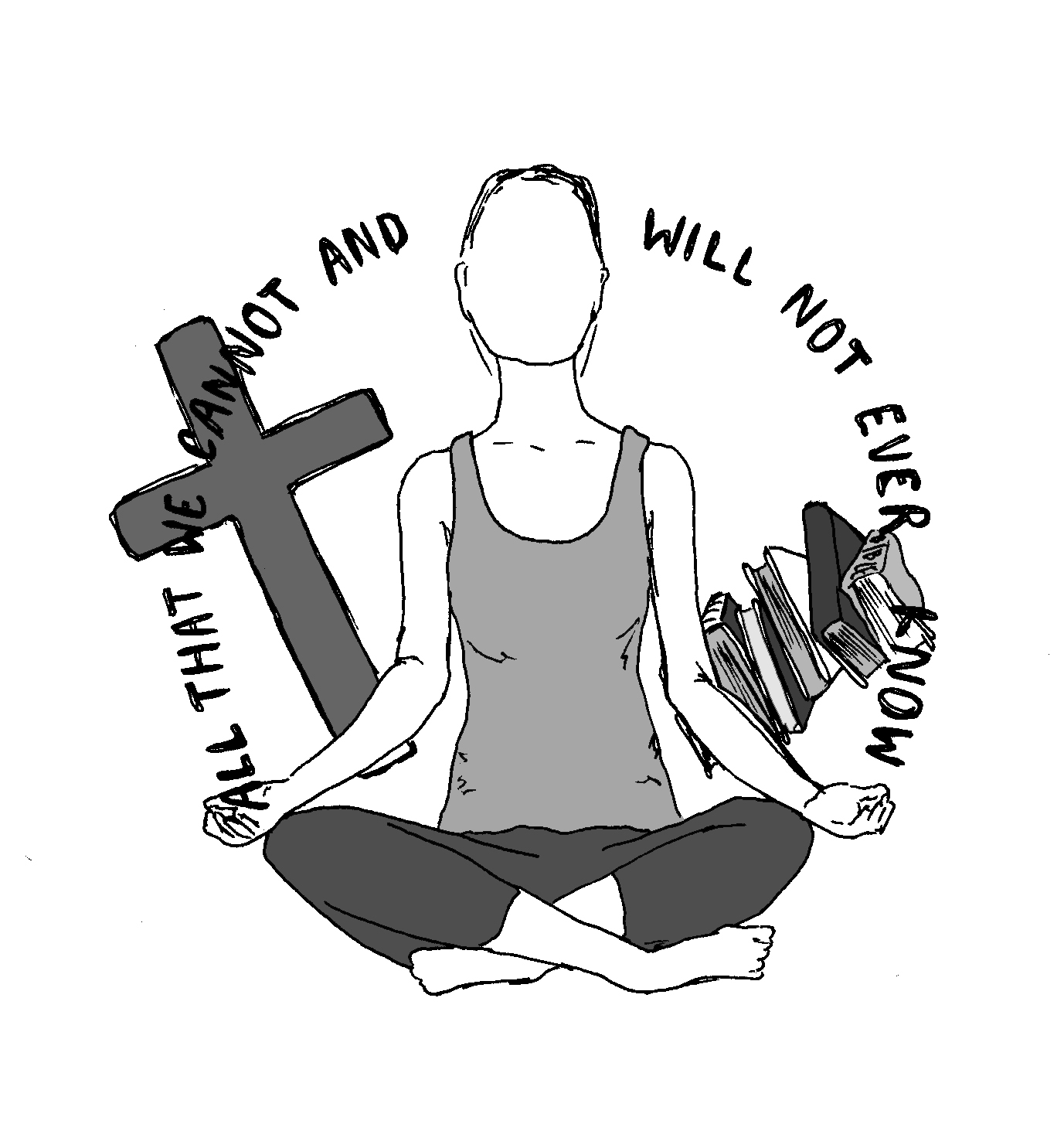Searching for spirituality, religion as radical practice
February 14, 2020
I identify as religious. My father comes from a long line of Irish-Catholics; he and my mother, who was raised Lutheran, decided to raise my sisters and me in the Catholic Church. In high school, my religious identity became an active choice: even when my parents took breaks from going to church, I would drive myself. I participated in the teen program after church on Sundays, attended retreats and took on leadership positions to minister to middle schoolers. In college, I’ve attended Sunday mass at the local Catholic church, led the children’s ministry, read scripture and participated in the Catholic Student Union.
Sometimes at Bowdoin I feel a certain hostility toward religion—as if people who are religious “drank the Kool Aid.” There is often an implicit or explicit bias that religious people are irrational or anti-intellectual. Some assume that, as a Christian, I am anti-women’s rights and homophobic—as a queer woman I find this pretty funny. At Bowdoin we value intellect above all else. We worship the human mind. We treat religion as, at best, a social-political construct, and, at worst, a disease.
This phenomenon of spurning institutionalized religion is not unique to Bowdoin: American millennials are participating in organized religious services at shockingly low rates. Members of this category often self-identify as Spiritual But Not Religious (SBNR). According to a 2019 Pew Research study, the number of SBNRs (or “nones” as they are also known) in America has increased by 30 million over the last decade. The study reveals that overall attendance of Christian churches is rapidly declining, and millennials make up the biggest proportion of non church-goers: 40 percent of millennials identify as unaffiliated compared to 25 percent of Gen Xers.
I do not judge or fault those who choose not to practice organized religion. I have deep empathy especially for people who have been rejected from or traumatized by religious institutions. I myself have taken long hiatuses from going to church, either because I’ve felt exhausted from holding the tension between the good and bad parts of my institution or because I just wanted to take a break. However, I want to caution those who antagonize religion in general or deny the potentially contradictory nature of being “spiritual but not religious.”
Religion is not a disease. Viewing it as such denies how religion has literally and figuratively provided healing, liberation and purpose for people throughout history. Read just about anything written by Reverend Dr. Martin Luther King Jr., whose Ph.D. was in systematic theology; scan the lyrics of the Black National Anthem sung at Michelle Alexander’s annual MLK Day lecture; study the Liberation Theology movement out of South America. There are Christians, Muslims, Jews, Buddhists and Hindus around the world who are inspired to protect the earth, care for the poor and help refugees.
I will be the first to admit that Catholicism—and Christianity at large—has many institutional flaws and is responsible for a lot of pain in the world. I have leaned into the uncomfortable, difficult truths: violent and ongoing suffering caused by colonialism, American individualism that emerged from the Protestant ethic, priests who continue to leverage their power to sexually abuse children and a stagnant and inflexible doctrine that, at best, tolerates queer people and women and, at worst, excludes and oppresses us.
There are ugly things about every religion, even those that Westerners romanticize as peaceful or innocuous. Rakhine Buddhists, for instance, have killed thousands of Muslim Rohingya people in Myanmar in an ongoing conflict known as the Rohingya Genocide. There is no such thing as a good or an evil religion. There are good and evil people, who choose to interpret and implement religion in good and evil ways.
And yet, many SBNRs—many of them white and upper-class—seem quite drawn to Eastern religious rituals, such as yoga and Zen Buddhism, but SBNRs are attempting to divorce these rituals from their religious, communal and deeply political origins and appropriate them as de-politicized, individualized practices to enhance personal performance. No wonder meditation and mindfulness training—including apps and drop-in studios—is estimated to be a $1.1 billion industry and popular among corporate giants like Google, Nike and Apple.
I believe we all must look for sources of replenishment in order to survive as members of a society plagued by capitalism, colonialism and rugged individualism. I do not fault those who practice meditation or yoga as a way to reckon with this chaos. You may find me at yoga on Sundays (led by my good friend Marie!). And yet, I see this as a religious exercise.
Religion for me complements the intellectual stimulation I find from school or the fulfillment I derive from secular social justice work. It teaches me that although honing my intellect is important, it is equally important to satisfy my soul. It’s important to embrace the mystery of all the things the human mind cannot and will not ever know. In my worst moments, religion has challenged me not to retreat inward but to look outward toward all the people who love and support me. For me religion is not a disease but rather a radical remedy.


Comments
Before submitting a comment, please review our comment policy. Some key points from the policy: